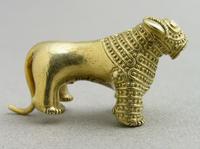The Hellenistic period, spanning from the death of Alexander the Great in 323 BC to the beginning of the Roman Empire in 31 BC, marked a significant era in the history of Georgia. This period was characterized by the spread of Greek culture, language, and influence across a vast territory, including the region that is now modern-day Georgia.
Hellenistic Foundations in Georgia
The Hellenistic influence in Georgia began with the campaigns of Alexander the Great and continued through the Seleucid Empire, which controlled a large portion of Alexander's eastern territories after his death. During this time, Greek culture, language, and political structures began to permeate the region. The establishment of Greek-style cities and the spread of Hellenistic art and architecture were particularly notable.
One of the most significant impacts of the Hellenistic era in Georgia was the introduction of urbanization. Greek settlers and local elites founded cities such as Dioscurias (modern-day Sukhumi) and Phasis (modern-day Poti), which became centers of Greek culture and commerce. These cities were laid out in typical Hellenistic grid patterns and featured public buildings like theaters and temples, showcasing the architectural prowess of the period.
Economic and Cultural Exchange
The Hellenistic period was marked by a significant increase in economic activity in Georgia, primarily through trade. The region's position along the Black Sea coast made it a crucial point in maritime trade routes, facilitating the exchange of goods and ideas. Georgian kingdoms, particularly Colchis and Iberia, became integral parts of the Hellenistic world, engaging in trade with Greek city-states and later with the Roman Empire.
Culturally, the influence of Hellenistic art and philosophy was profound. Georgian elites adopted Greek styles in their art, coinage, and even language. The use of Greek became common in inscriptions and official documents, indicating the extent of Hellenistic cultural penetration.
Military and Political Impacts
The Hellenistic period also saw changes in military tactics and political structures in Georgia. The influence of Greek phalanx warfare was evident in local armies, and Georgian kingdoms began to emulate the political organization of Hellenistic states. This period marked a shift from tribal structures to more centralized kingdoms, a change that was partly influenced by the models of governance seen in Hellenistic empires.
Religious and Social Influence
Religiously, the Hellenistic period introduced new deities and religious practices to the region. While local religions and beliefs persisted, there was a noticeable syncretism with Greek gods and religious practices. This blend of local and Hellenistic religious beliefs led to a unique religious landscape in Georgia, which persisted even after the end of the Hellenistic era.
Socially, the Hellenistic influence manifested in the adoption of Greek dress, language, and customs by the Georgian elite. This cultural assimilation, however, was mostly limited to the upper classes, with the rural and tribal populations largely retaining their traditional ways of life.
Hellenistic Legacy in Georgian Culture
The legacy of the Hellenistic period in Georgia is evident in various aspects of Georgian culture. The fusion of Greek and local artistic styles created a unique cultural identity that influenced Georgian art and architecture for centuries. The use of the Greek language and script also had a lasting impact on the Georgian educational and administrative systems.
Conclusion
In conclusion, the Hellenistic period played a pivotal role in shaping the historical and cultural landscape of Georgia. The introduction of Greek culture, language, and political structures had a profound and lasting impact on Georgian society. The legacy of this era is still visible in the country's art, architecture, and cultural identity.
This overview highlights the significant aspects of Hellenistic influence in Georgia, focusing on the economic, cultural, political, military, religious, and social changes that occurred during this period. The Hellenistic era, with its blend of Greek and local elements, contributed to the rich tapestry of Georgian history and culture.

 Kingdom of Colchis
Kingdom of Colchis
 Kingdom of Iberia
Kingdom of Iberia
 Roman Influence in Georgia
Roman Influence in Georgia




